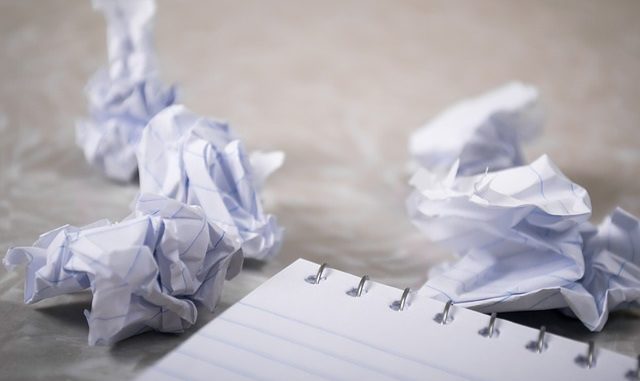
Occasionally, when people discover that I’m a writer, they will confess that they have a book or a short story that they would absolutely love to write and have published. The thing I almost never ask – because I’m British and typically reserved about such things – is “Then blooming well do it. Find some time; give up the TV for an hour every evening, or get up half an hour early If it’s important to you, then just do it.”
There are those who talk about writing, and those who are voracious readers, but all of these people aren’t actually writing. They’re not actually doing the thing they should be doing. Not writing comes in many forms;
Talking about writing is not writing.
Reading is not writing.
Thinking about writing is not writing.
Outlining is not writing. Well, to a degree; outlining needs to be done, so you can get away with that for a while, but there comes a time when you need to stop outlining.
We all have the same twenty-four hours. Dreaming of writing is easy. Making yourself sit down and do it, is not. We can all find 15 minutes every day to write, and there are things you can do, if you’re self-disciplined enough. Here’s a few suggestions;
- Cut back on social media. Don’t delete it altogether, but limit your use. After all, why promote yourself when you’re not creating anything for others to read?
- Get up half an hour earlier, or go to bed half an hour later.
- Write during your lunchtime break, coffee time, whenever.
- Write on your day off. It’s better to be a weekend writer than not at all.
Find something to write about, even when you think your creativity is drying up; why you want to put that item on your shopping list, what you daily routine is – anything.
- Carry a notebook, or use a dictaphone, to record notes.
- Take whatever time you can get. Don’t wait until you’ve got a free window of two hours uninterrupted writing time; you’ll be disappointed.
I’m no better than anyone else, yet I write every day. Why? Because it’s my first priority every day. People often worry about their writing will look like (I do every day), but only by putting it down on paper will you see what it’s actually like – and only then will you be able to seek out advice from your peers and improve.
Think about your writing space (where are you most comfortable?), disconnect the internet if you really have to, and work out when the best time is for you to write. And don’t say, “I’ll try”; say, “I’ll do it.” There are no conditions that are necessary in order for you to write, save two: 1) You must have a writing implement, and 2) you must have somewhere for the writing to go, such as into a computer or onto a piece of paper. A readership and a following can follow later.
All this comes down to one simple question. How important is writing to you? Because how you spend your time is how you spend your life; if you want to write, then just damn well write.

